IMPORTANT - to apply for Veterinary Medicine at Cambridge in autumn 2025 (to start October 2026 or 2027) you must register for our Engineering and Science Admissions Test by a deadline in September 2025. Please see this link.
Many applicants assume that they will not get onto the Cambridge vet course, but in many ways our admissions system is the simplest. If you are doing, or have done, well in science/maths at school or university, then you may find that Cambridge is the vet school at which you are most likely to gain a place.
All veterinary schools receive more applications than there are places available, but if you are passionate about wanting to study veterinary medicine and have a strong interest in science, we encourage you to apply. It is a competitive process but all applications are considered extremely carefully. Most of our applicants are interviewed, which provides a great opportunity for you to really show your passion for the subject and your scientific abilities...
- if you are doing well in school science/maths, you may find the Cambridge veterinary course is the easiest to secure a place on
- we do not require extensive vocational experience - we suggest ten working days, if possible
- you do not have to have a 'veterinary background' - few of our students have parents who are vets, and many come from schools and communities from which few students have gone on to study veterinary medicine
- a recent decision to apply for veterinary medicine is no disadvantage, and you do not need to be studying biology
- over 50% of applicants are interviewed, usually in two simple-format, half-hour, conversational interviews
- we welcome applications from candidates who have previously applied unsuccessfully to UK vet schools, including Cambridge, if they have since reached or exceeded the university's typical conditional offer (e.g. A*AA at A level)
- we welcome applications from candidates with disabilities, specific learning disabilities or other health conditions
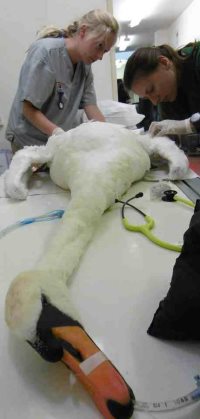 Making your application
Making your application
Across the UK, the admissions process for Veterinary Medicine starts earlier than for other courses, so the deadline for submitting your online application to UCAS is usually the 15th October – but check this date on the UCAS website. A detailed description of the admissions process can be found in the Cambridge online prospectus available here.
We encourage you to use the fifth, non-veterinary, ‘backup’ choice on your UCAS form, if you wish.
From applications in 2024 onwards, all applicants for Veterinary Medicine at Cambridge should register for the Engineering and Science Admissions Test. The content and question type of this will be similar to the previous Natural Sciences Admissions Assessment, it will be delivered in a different way - see this page for full details, including registration deadlines. Please note that you must register for the ESAT separately, usually by 16th September (but check the website!) in addition to your UCAS application. As the ESAT is administered through an external provider to ensure its smooth running, it is necessary to charge a registration fee, although this is waived for UK applicants from financially disadvantaged backgrounds - see the website for more details.
Although there is much discussion between them, it is the individual Cambridge colleges which conduct the admissions process. When you fill in your UCAS form you will be asked either to choose a college, or make an ‘open application’. If you select the 'open' option, you will be automatically allocated to a college which will consider your application as if you had applied to them directly - you will not be disadvantaged.
Some applicants worry about choosing a college, but you should see it as a positive decision which allows you to choose the place where you may spend much of the next six years. Look at some college websites, maybe attend an open day if you can (don't worry if you can't!) and pick the college you think looks best for you.
Your choice of college does not affect your chances of getting a place on the Cambridge vet course. The colleges each have a nominal ‘quota’ of applicants, but they often take more. Also, colleges with larger quotas tend to get correspondingly more applicants, so you should not worry about quota sizes when picking your college.
The quotas are: Churchill 2, Clare 4, Downing 2, Emmanuel 4, Fitzwilliam 4, Girton 9, Caius 2, Homerton 5, Jesus 3, Lucy Cavendish 4, Magdalene 4, Murray Edwards 5, Newnham 3, Pembroke 2, Queens' 3, Robinson 4, St Catharine's 5, St John's 4, Selwyn 4, Sidney Sussex 2, Trinity Hall 2.
Christ’s, Corpus Christi, Hughes Hall, King’s, Peterhouse and Trinity do not admit vets. If you apply to one of these colleges your application will simply be allocated to a college which does.
There are also further places reserved for graduate and mature students – see the ‘Graduates and over-21s’ menu tab for more details.
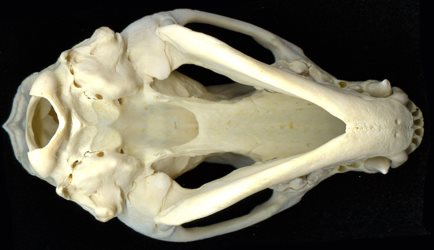 Once the UCAS application is completed, an online general MyCambridgeApplication questionnaire is sent to applicants in all subjects - thus, it is not veterinary-specific, and often does not have much influence on the success of your application.
Once the UCAS application is completed, an online general MyCambridgeApplication questionnaire is sent to applicants in all subjects - thus, it is not veterinary-specific, and often does not have much influence on the success of your application.
Some of the questions may not seem very relevant to you – you may feel you have already put most of what you want to tell us on your UCAS form. This is fine: do not worry if you do not write in some of the boxes on the additional form.
This questionnaire is not equivalent to the questionnaires sent out by some other vet schools, to which your answers may be extremely important in their selection processes.
More than half of our applicants are called for interview, usually early in December.
Nany colleges interview online (using a simple platform such as Whereby or Zoom) but some interview in person. If you are considering applying to a particular college, you can look on their website to see how they interview. Our advice is, however, not to select your college on the basis of how it interviews - it should make no difference to your chances of gaining an offer.
A common format is for candidates to have two interviews of twenty-five minutes each, each with two interviewers, conducted on the same day. See below for details.
After the interviews have taken place, we run a system called the 'intercollegiate pool' which allows redistribution of applicants between colleges. Its aim is to ensure that applicants are not advantaged or disadvantaged if they apply to a college which happened to receive a low or high number of veterinary applicants that year. Colleges place applicants' files and interview reports into a central database, so other colleges can then decide to make offers to those applicants. You do not need to ask to be entered into this system, and the criteria used when deciding to make offers via this route are the same as for all other applicants. The pool system means that 20-25% of our students come to study at a different college from the one to which they applied - but bear in mind that all colleges provide the same types of academic and other support.
Decisions about offers are made in mid-to-late January. All offer-holders are invited to a non-compulsory online Offer Holders’ Event, usually in February, where they receive an introduction to what life will be like here as a veterinary student – from Day 1 to graduation as a vet, including advice from current students.
In May you will have to confirm in UCAS which of your offers you would like to make your ‘firm’ offer, and which is your ‘insurance’ offer. Remember that if you achieve your insurance offer, but not your firm offer, your insurance university is committed to giving you a place.
“Don't be put off - I didn't think I stood a chance of getting in either!” - Emma
What criteria do we use to make our decision?
It is generally accepted that the admissions process at Cambridge is more science-oriented than that for other veterinary courses. Because of this emphasis, applicants who are confident at science and maths, and good at dealing with novel scientific concepts will find Cambridge the easiest veterinary course on which to secure a place.
1. GCSEs
GCSEs (or their equivalent) are not as important to us as A-levels (or their equivalent), but obviously it is encouraging if you have done well relative to your school's usual GCSE attainment level, especially in science/maths subjects.
2. A-Levels, or Equivalent
Our research shows that for ‘standard-age’ applicants, success in science/maths in the last two years of school is a strong indicator of performance on courses at Cambridge.
You should be taking Chemistry, and at least one of Biology, Physics or Mathematics. The latter three subjects are considered equally.
Many applicants are taking three science/maths subjects in total, and our experience suggests that they are more likely to be successful than those taking two - although every year we admit strong applicants who have taken only two science/maths subjects. In this context, we realise most applicants have had to choose their full A-level subjects soon after their GCSE results, with little opportunity to change their mind afterwards, so the important thing is to work hard in the science/maths subjects you are doing.
Unsurprisingly, most of our applicants are taking Biology, but we do not require it - we certainly welcome applications from candidates who are doing well in the physical sciences and maths.
We do not count Psychology as an enabling science subject. However, Further Maths may act as an enabling subject, support your application, and be included in your conditional offer – ask individual college admissions offices for advice.
The typical conditional offer for Veterinary Medicine at Cambridge is A*AA, one of which must be Chemistry. Most successful applicants who have not yet taken their exams will receive this conditional offer, unless they have special circumstances or if their A-level subjects necessitate an offer with more complex phrasing.
Please note that Colleges may differ slightly in the offers they set - for example, some colleges may ask that the A* is in Chemistry or that applicants are taking three maths/science subjects. There is more information about this on this page. However, you should feel free to contact individual colleges' admissions offices if you have any further queries.
Extended Project Qualifications and non-science fourth A-levels would not usually form part of the conditional offer, but they may be discussed at interview.
Admissions offices at Cambridge colleges regularly consider applicants with qualifications other than A-levels.
- International Baccalaureate - the typical offer is a total of 41-42 and 776 in higher-level or science/maths subjects; applicants are encouraged to take Chemistry and two other science/maths subjects, with at least two in total at higher level
- Scottish Advanced Highers - the typical offer is currently A1,A,A; similar subject choices recommended as for A-level applicants. If you were not able to take three advanced highers, contact the college to which you are thinking of applying.
- Pre-U - the typical offer is D2,D3,D3
- For other qualifications, you can find more information here, or on individual college admissions websites.
We sometimes receive queries and applications from candidates who have taken a variety of scientific access and foundation courses. If you have taken this route, you should read the general guidance for Cambridge applications at this link. In any case, you are advised to contact in advance the admissions office of the college to which you are thinking of applying.
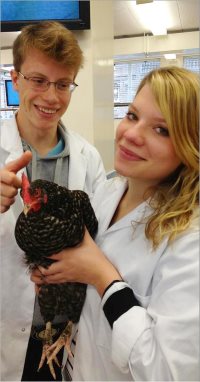 3. Admissions assessment
3. Admissions assessment
For applications from 2024, all Veterinary Medicine applicants will be asked to take the University’s pre-interview ‘Engineering and Science Admissions Assessment’. Please ensure you register for this assessment, by 29th September in 2025 - separately from submitting your UCAS form.
Bear in mind that this assessment is just one of the pieces of information we use in our selection process - we still look at performance in public exams in science/maths subjects, and at interview, if you are called for one. The aim of the assessment is to give us an idea of your ability in school-level maths/science. Some sections of the assessment allow a choice between questions on different science subjects, and vet applicants should feel completely free to pick whichever sections they prefer. Although the subject matter is school-level, the questions are sometimes hard - so please don't worry if they seem hard to you!
For more information, see this link.
4. The Interview
Interviews are an important part of the applications process, so we call more than 70% of our applicants for interview. We look for candidates with:
- commitment to a veterinary or veterinary-related career,
- good problem solving skills,
- an aptitude for discussing scientific and mathematical concepts,
- enthusiasm for discussing veterinary cases they have seen (see below),
- keenness to discuss veterinary/scientific issues, especially those encountered from wider reading or research, and
- evidence of an ability to balance work and leisure activities.
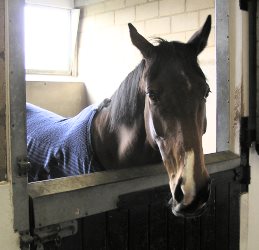 Although you may be asked some question that seem difficult at first sight, do not worry – this is how we ascertain how far you can take new ideas and concepts. We will be welcoming and do our best to help you perform to the best of your ability.
Although you may be asked some question that seem difficult at first sight, do not worry – this is how we ascertain how far you can take new ideas and concepts. We will be welcoming and do our best to help you perform to the best of your ability.
Because applicants are often understandably nervous, we really try to make the interviews as informal as possible. If you are being interviewed in person, do not feel you have to dress smartly!
Many applicants find their interviews enjoyable (yes - really!) and some of our students even tell us that their interview was what made them realise Cambridge was the best vet school for them.
Applicants for all subjects at Cambridge are encouraged to undertake some preparatory supercurricular activities - going beyond their school curriculum, usually by reading/researching about scientific/clinical topics which interest them. It is important to emphasise that
- this can include any biological science, physical science, mathematical or clinical topics
- we do not recommend what to research, but prefer applicants to be guided entirely by what interests them
- it can take any form, including printed books and magazines; online resources, videos and courses; trips, visits and competitions; you do not have to spend any money
- we encourage you to have a look at the Virtual Work Experience and Exploring the Veterinary Profession MOOC prepared by all the UK Vet Schools, including Cambridge; do not pay to get the final certificate!
So - you may find that if you are the sort of person who likes finding out about 'stuff', you may have been doing this sort of thing already, and thus have enough to write about on your personal statement. Also, bear in mind that your supercurricular interests may or may not be discussed at interview, so don't worry if they're not - we will definitely have read what you've said about them on your personal statement.
Many candidates worry that they should have done some interview preparation, but please do not worry about this too much. You might want to arrange a couple of 20-minute sessions chatting with a school teacher one-to-one about some academic topics, but other than that, just briefly revise the content of your school maths/science subjects, and re-read your personal statement just in case we ask you about something on it.
Nothing else is needed - and please do not feel you have to pay money to a commercial company which claims to 'train' you for your Cambridge interview. Such training is of no help, and can indeed give candidates misleading advice and make them worry more. The interview is a positive process - we want to give you the chance to show what you can do and how you think, and that's all!
“Everybody is nervous before interviews, it's natural. However, there's nothing to fear! It's not a test to see if you know the answers, but a way for the interviewers to understand your thought processess and how you approach a challenge.” - Callum
5. Vocational Experience
It is important to emphasise that we do not demand large amounts of veterinary work experience.
Instead, we merely suggest that you should try to gain enough to (1) be able to discuss your experiences at interview and (2) have a realistic idea of what a veterinary/scientific career entails. Prolonged, varied and ‘impressive’ experience will confer no advantage.
We do not have an absolute requirement for vocational experience, but a total of two weeks of EITHER 'seeing practice' with vets in a clinical setting, OR managing animals in a commercial or charity setting (farms, pet shops, rescue centres) is a good idea. Your vocational experience does not have to be done in a single 'block', so our suggested amount could be thought of as 'a cumulative total of 10-12 working days'.
This limited recommendation is very important for fair access to the course: not everyone has the time, money, contacts or parental availability to see remote hill sheep farming practice, but many can arrange a couple of weeks, or some Saturday mornings.
If you have had trouble arranging vocational experience for any reason - including if you only recently decided to apply for Veterinary Medicine - you should explain this on the MyCambridgeApplication online questionnaire (see above). Please do not feel you cannot apply, or should delay your application, if you do not yet have any vocational experience.
The best way to prepare for discussing your vocational experience at interview is to be observant, interested, interactive and thoughtful. Ask lots of questions about what is going on, and make time to talk to everyone in the setting about their working lives. If something has particularly interested you, read more about it online. Don't worry if there were things you didn't understand - these things can sometimes form the basis of an interesting discussion at interview.
What criteria do we focus on less?
Although you may be asked about things you have written in your UCAS personal statement, your statement will not be assessed, graded, ranked or used to decide whether you are interviewed or offered a place. This is because we are aware of the variation in the amount and quality of advice applicants receive in the preparation of their personal statements.
A long list of extracurricular activities will not advantage your application. Although it is good if you can show that you can do well in science/maths, while still maintaining a good balance between work and recreational activities, it does not actually matter what those activities are - or if you are any good at them. You should still include your extracurricular activities, however, because other universities are often interested in them.
Most UCAS school reports are very complimentary about veterinary applicants, so they often do not provide much information to allow us to distinguish between applicants’ potential. If, however, something has disadvantaged your school or your own education, this is a very good place for it to be mentioned. Also, we enthusiastically support the University’s Extenuating Circumstances Scheme.
…and three important points
1. We welcome applications from candidates who have previously applied unsuccessfully to study Veterinary Medicine at Cambridge or elsewhere, as long as you have subsequently achieved our typical conditional offer. Re-applying certainly puts you at no disadvantage, and indeed, many of our current students came to us via this route.
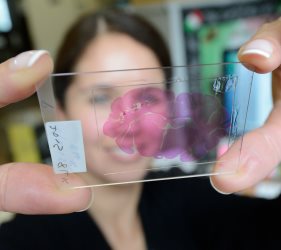 2. We are happy to accept applications from candidates who wish to take a gap year before starting their course. Your plans may involve travel or an opportunity to earn some savings prior to starting the course, and the time certainly need not necessarily be spent in veterinary-related employment. Our only advice is that you should apply at the first opportunity (i.e. while at school for most people) so that if you are unsuccessful the first time, you can try again during your gap year. If you decide you would like to take a gap year after you already have an offer, please contact the offering college - it is not always possible to change the entry year once an offer is made.
2. We are happy to accept applications from candidates who wish to take a gap year before starting their course. Your plans may involve travel or an opportunity to earn some savings prior to starting the course, and the time certainly need not necessarily be spent in veterinary-related employment. Our only advice is that you should apply at the first opportunity (i.e. while at school for most people) so that if you are unsuccessful the first time, you can try again during your gap year. If you decide you would like to take a gap year after you already have an offer, please contact the offering college - it is not always possible to change the entry year once an offer is made.
3. Finally, a disability, specific learning disability or other health condition need not prevent you from studying with us and becoming a veterinary surgeon if you can satisfy the professional Fitness to Practise requirements. We often find that applicants have previously been dissuaded unnecessarily from enquiring about a veterinary career. However, you should contact a college admissions tutor, or the Deputy Head of Department (Teaching) at the Department of Veterinary Medicine, as early as possible to discuss your needs. The sooner we know about them, the sooner we can put additional measures in place to support you - during the application process, and on the course. Also, for more information, have a look at the RCVS Fitness to Practice booklet here.
“The veterinary school is a short cycle ride from the town so even in the clinical years it is easy to go to town for shopping or a night out.” - Tom



